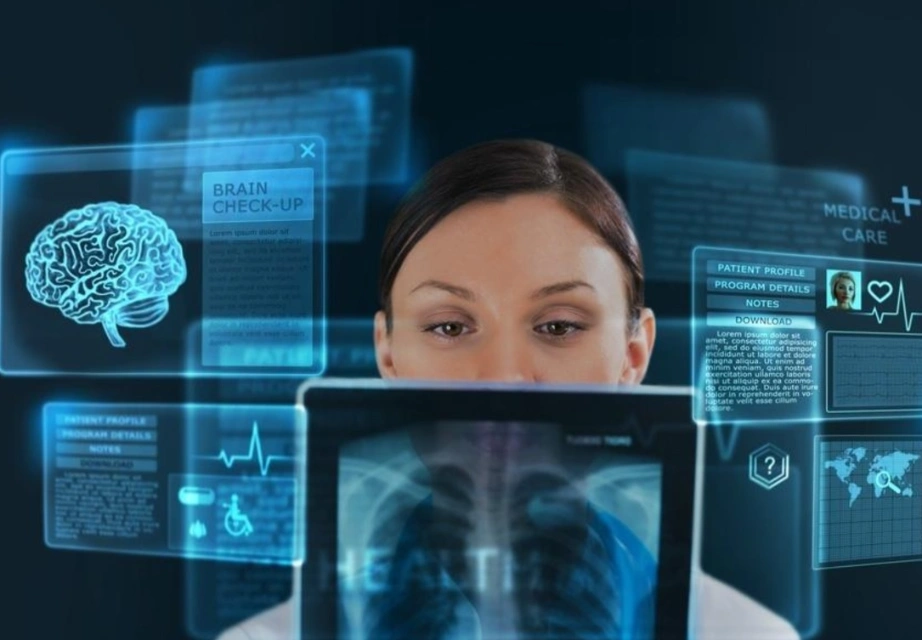The healthcare industry has long been on the lookout for innovative solutions that can improve patient outcomes, streamline operations, and enhance the overall quality of care. For years, various technologies have been introduced to address these challenges, but one of the most transformative forces in healthcare today is machine learning (ML). Machine learning, a subset of artificial intelligence (AI), has made significant strides in recent years, and its integration into healthcare is increasingly becoming a game-changer.
From enhancing diagnostic accuracy to predicting disease outbreaks and optimizing treatment plans, machine learning systems are providing healthcare professionals with powerful tools that can improve the quality of care, reduce costs, and make healthcare more accessible. In this article, we will explore how machine learning is being used to improve health, some of the key applications in healthcare, the challenges that still exist, and what the future holds for this technology in the medical field.
What Is Machine Learning and Why Is It Important in Healthcare?
At its core, machine learning refers to a type of AI that allows systems to learn and improve from experience without being explicitly programmed. ML algorithms analyze vast amounts of data to identify patterns and make predictions or decisions based on that data. The more data the system is exposed to, the better it becomes at making predictions or identifying insights, a feature that is incredibly valuable in the complex world of healthcare.
In the past, healthcare systems were often burdened by the sheer volume of data—patient records, medical imaging, clinical trial results, and real-time data from devices and wearables. With machine learning, much of this data can be processed and analyzed much more efficiently, allowing for more accurate decision-making and faster responses to medical situations.
Machine learning is important in healthcare for several reasons:
- Improved Diagnosis: Machine learning systems can help diagnose diseases with greater accuracy by analyzing patient data, medical records, and medical imaging. With the right algorithms, ML systems can often identify patterns that may be overlooked by human doctors.
- Predictive Analytics: ML models can predict potential health issues by analyzing historical patient data. This could lead to early detection of diseases, improving patient outcomes by allowing doctors to intervene before a condition becomes severe.
- Personalized Treatment: ML can also help develop personalized treatment plans by analyzing a patient’s unique genetic makeup, medical history, and response to previous treatments. This individualized approach ensures that patients receive the best possible care based on their specific needs.
- Cost Efficiency: By automating administrative tasks and optimizing resource allocation, machine learning can help reduce operational costs in healthcare settings, making healthcare more accessible to a broader population.
Machine Learning in Action: Key Applications in Healthcare
Machine learning systems have already been successfully integrated into various aspects of healthcare. Let’s examine some of the most impactful and innovative applications of machine learning in medicine today.
- Medical Imaging and Diagnostics
Medical imaging plays a critical role in diagnosing a wide range of conditions, including cancer, heart disease, and neurological disorders. Traditionally, radiologists would manually review X-rays, MRIs, CT scans, and other imaging results to make diagnoses. However, with the help of machine learning, the process has become much more efficient and accurate.
Deep learning algorithms, a subset of machine learning, are now capable of interpreting medical images with a level of precision that rivals human radiologists. These algorithms can identify patterns in images and highlight potential issues, such as tumors, fractures, or abnormalities in organs. In some cases, machine learning models have outperformed human radiologists in diagnostic accuracy, particularly in the early detection of diseases such as breast cancer and lung cancer.
- Predictive Analytics and Early Detection
Predictive analytics is another area where machine learning is making a significant impact. By analyzing large datasets, machine learning systems can identify patients at risk for certain conditions before symptoms appear. This allows healthcare providers to intervene earlier, which is often critical for improving patient outcomes.
For example, machine learning models have been used to predict the likelihood of heart attacks, strokes, and diabetes in individuals by analyzing their medical history, lifestyle choices, and genetic factors. These predictions can enable healthcare providers to take preventive measures, such as recommending lifestyle changes or medication, to help patients avoid developing these conditions.
In addition, ML systems can analyze data from wearable devices—such as heart rate monitors and fitness trackers—to track vital signs in real time and alert both the patient and healthcare provider of any abnormal readings that may indicate a developing issue.
- Personalized Medicine and Treatment Plans
Personalized medicine is a growing field in which machine learning has great potential. ML systems can analyze a patient’s unique genetic makeup and medical history to develop individualized treatment plans. This personalized approach ensures that treatments are tailored to each patient’s needs, increasing the likelihood of successful outcomes.
For instance, cancer treatments can be personalized by analyzing a patient’s genetic profile and identifying the most effective drugs or therapies for their specific type of cancer. By utilizing ML models to predict how a patient will respond to certain medications, doctors can avoid ineffective treatments and reduce adverse side effects.
Moreover, ML can assist with optimizing dosages and treatment regimens by analyzing real-time data and patient feedback, ensuring that patients receive the most effective care with the least amount of harm.
- Drug Discovery and Development
The drug discovery process is notoriously lengthy and expensive, with many drug candidates failing during clinical trials. Machine learning is helping to streamline this process by predicting how molecules will behave and identifying potential drug candidates faster than traditional methods.
ML algorithms can analyze vast amounts of data from preclinical trials, scientific literature, and molecular structures to predict which drug compounds are most likely to be effective in treating specific diseases. This can significantly speed up the discovery of new treatments for conditions ranging from rare diseases to chronic illnesses.
In addition, machine learning is helping to identify existing drugs that may be repurposed for new uses. For example, algorithms have successfully identified drugs that could be effective against diseases like COVID-19, leading to faster treatments and responses to global health crises.
- Healthcare Administration and Workflow Optimization
Beyond patient care, machine learning is also being used to improve the administrative side of healthcare. ML systems can help streamline workflows, optimize scheduling, reduce billing errors, and automate repetitive tasks. By reducing the administrative burden on healthcare providers, machine learning allows them to spend more time focusing on patient care.
For example, ML can assist with appointment scheduling by predicting which patients are likely to miss their appointments and sending reminders to ensure they attend. ML systems can also help prioritize patient care by identifying which cases require immediate attention based on the urgency of the symptoms.
Challenges in Implementing Machine Learning in Healthcare
While machine learning holds tremendous potential in healthcare, there are still several challenges that need to be addressed before it can be fully integrated across the industry.
- Data Privacy and Security: Healthcare data is sensitive, and ensuring that patient information remains private and secure is critical. Machine learning models require access to large datasets, and maintaining data privacy while using this information for analysis is a significant concern.
- Bias in Algorithms: Machine learning models are only as good as the data they are trained on. If the data is biased—whether due to underrepresentation of certain groups or inaccuracies in the data—the algorithm’s predictions and outcomes may be flawed. Ensuring that training data is diverse, representative, and unbiased is essential to preventing discriminatory results.
- Integration with Existing Systems: Healthcare systems can be complex, with various departments, software platforms, and data sources. Integrating machine learning technologies with existing infrastructure can be challenging and may require significant investment in new tools, training, and infrastructure updates.
- Regulation and Standards: As with any emerging technology, regulatory bodies need to develop guidelines and standards for the use of machine learning in healthcare. Ensuring that these systems are safe, effective, and meet regulatory standards is crucial for their widespread adoption.
The Future of Machine Learning in Healthcare
The potential for machine learning to transform healthcare is vast, and as the technology continues to evolve, we can expect to see even more innovations that improve patient care, reduce costs, and enhance the efficiency of healthcare systems. Shortly, machine learning may help solve some of the most pressing challenges in healthcare, such as providing access to high-quality care in underserved areas, tackling global health crises, and improving the accuracy of diagnostics and treatment plans.
With continued advancements in AI, healthcare professionals, researchers, and technologists are poised to work together to create a future where machine learning systems not only assist doctors and nurses but become integral tools in shaping the future of healthcare.
In summary, machine learning has already begun to revolutionize healthcare, improving health outcomes, optimizing treatment plans, and providing new insights into the human body. As the technology continues to mature, it holds the promise of making healthcare more accessible, efficient, and personalized than ever before. By overcoming existing challenges and promoting ethical and responsible implementation, machine learning has the potential to improve health, one system at a time.






0 Comments